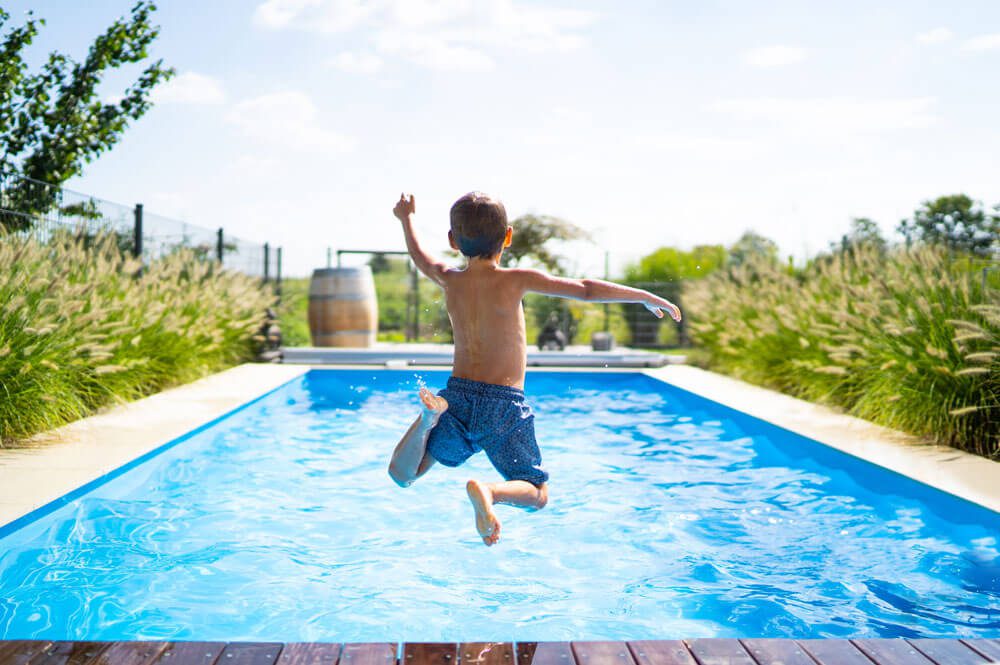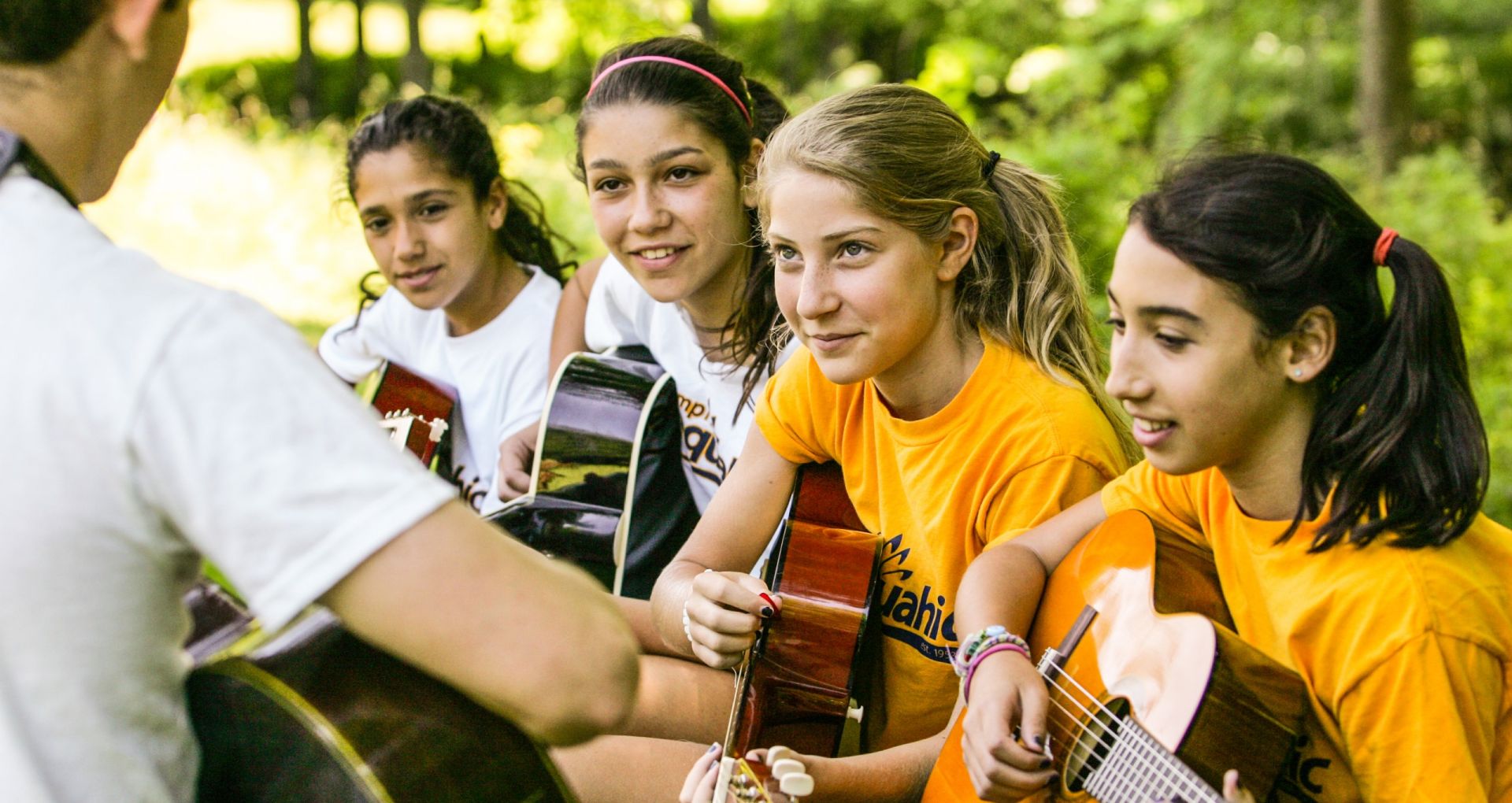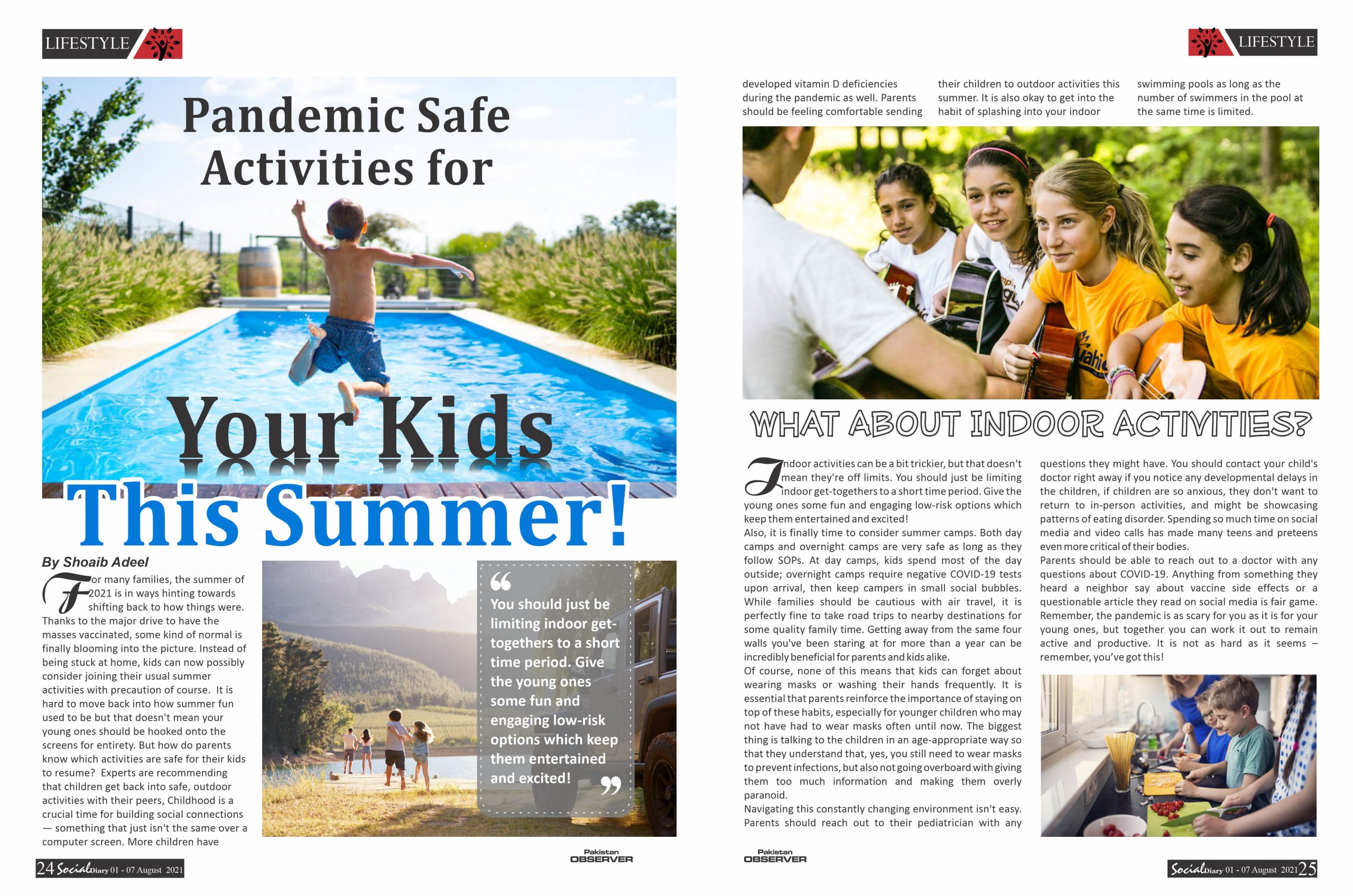
By Shoaib Adeel
For many families, the summer of 2021 is in ways hinting towards shifting back to how things were. Thanks to the major drive to have the masses vaccinated, some kind of normal is finally blooming into the picture. Instead of being stuck at home, kids can now possibly consider joining their usual summer activities with precaution of course. It is hard to move back into how summer fun used to be but that doesn’t mean your young ones should be hooked onto the screens for entirety. But how do parents know which activities are safe for their kids to resume? Experts are recommending that children get back into safe, outdoor activities with their peers, Childhood is a crucial time for building social connections — something that just isn’t the same over a computer screen. More children have developed vitamin D deficiencies during the pandemic as well. Parents should be feeling comfortable sending their children to outdoor activities this summer. It is also okay to get into the habit of splashing into your indoor swimming pools as long as the number of swimmers in the pool at the same time is limited.

What About Indoor Activities?
Indoor activities can be a bit trickier, but that doesn’t mean they’re off limits. You should just be limiting indoor get-togethers to a short time period. Give the young ones some fun and engaging low-risk options which keep them entertained and excited!

Also, it is finally time to consider summer camps. Both day camps and overnight camps are very safe as long as they follow SOPs. At day camps, kids spend most of the day outside; overnight camps require negative COVID-19 tests upon arrival, then keep campers in small social bubbles. While families should be cautious with air travel, it is perfectly fine to take road trips to nearby destinations for some quality family time. Getting away from the same four walls you’ve been staring at for more than a year can be incredibly beneficial for parents and kids alike.
Of course, none of this means that kids can forget about wearing masks or washing their hands frequently. It is essential that parents reinforce the importance of staying on top of these habits, especially for younger children who may not have had to wear masks often until now. The biggest thing is talking to the children in an age-appropriate way so that they understand that, yes, you still need to wear masks to prevent infections, but also not going overboard with giving them too much information and making them overly paranoid.
Navigating this constantly changing environment isn’t easy. Parents should reach out to their pediatrician with any questions they might have. You should contact your child’s doctor right away if you notice any developmental delays in the children, if children are so anxious, they don’t want to return to in-person activities, and might be showcasing patterns of eating disorder. Spending so much time on social media and video calls has made many teens and preteens even more critical of their bodies.
Parents should be able to reach out to a doctor with any questions about COVID-19. Anything from something they heard a neighbor say about vaccine side effects or a questionable article they read on social media is fair game. Remember, the pandemic is as scary for you as it is for your young ones, but together you can work it out to remain active and productive. It is not as hard as it seems – remember, you’ve got this!









